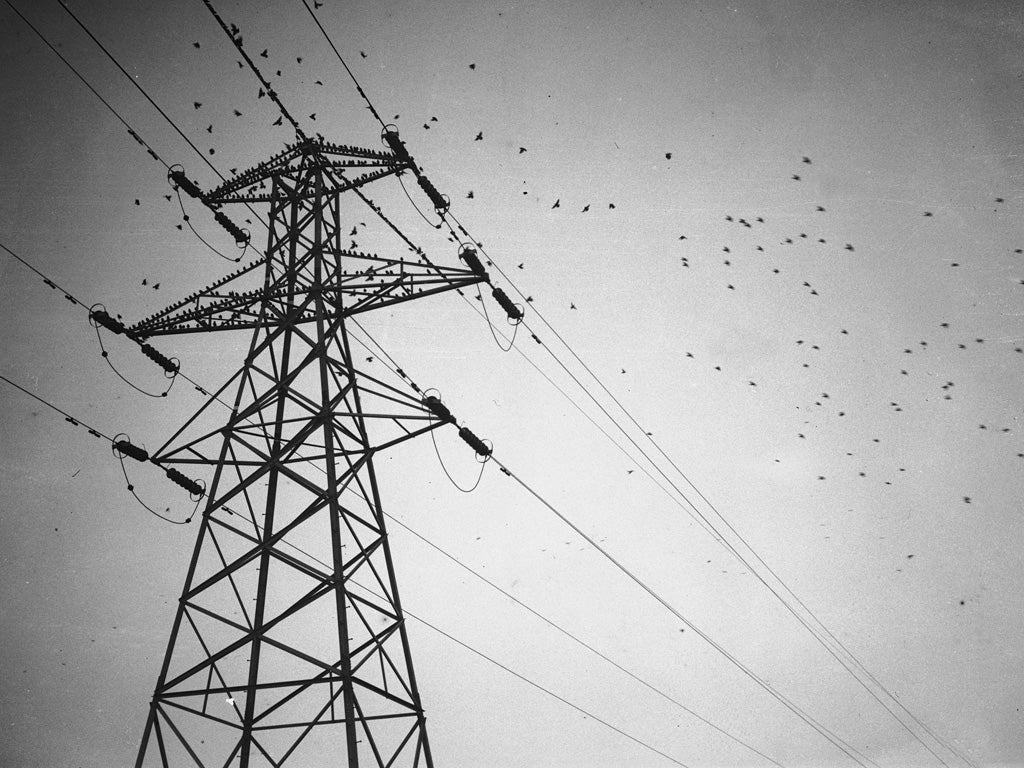UK faces winter power rationing as risk of blackouts rises
Industrial users of electricity would be first to face usage restrictions

Your support helps us to tell the story
From reproductive rights to climate change to Big Tech, The Independent is on the ground when the story is developing. Whether it's investigating the financials of Elon Musk's pro-Trump PAC or producing our latest documentary, 'The A Word', which shines a light on the American women fighting for reproductive rights, we know how important it is to parse out the facts from the messaging.
At such a critical moment in US history, we need reporters on the ground. Your donation allows us to keep sending journalists to speak to both sides of the story.
The Independent is trusted by Americans across the entire political spectrum. And unlike many other quality news outlets, we choose not to lock Americans out of our reporting and analysis with paywalls. We believe quality journalism should be available to everyone, paid for by those who can afford it.
Your support makes all the difference.The risk of electricity shortages this winter is at its highest level for nearly 10 years, National Grid warned today, with the situation likely to get worse before it gets better.
The company said that in a cold winter, the UK's electricity “margin”, or safety buffer, would be just five per cent - almost half last year’s level and the lowest since early in 2007.
But the company insisted it was wrong to say Britain faced blackouts and was confident extra energy would flow from the Continent if the country risked a supply shortage.
In the event of potential shortfalls industrial users of electricity would be the first face usage restrictions.
Chris Train, director of market operations for the grid, told an industry conference that “things will be tighter than they have been historically.”
But he would not comment on the likelihood manufacturers may be forced to cut back on their electricity or gas use at times of peak demand.
In its 2013/14 winter outlook report, National Grid said its central forecast was for an electricity margin of five per cent during peak demand in cold weather, broadly in line with previous analysis. A spare eight per cent capacity was forecast for average temperatures.
Margins have been falling over the past few years, due to new laws on power station emissions and economic pressure to mothball old gas-fired power stations.
This has only partially been offset by a fall in peak demands amid energy saving measures and declining heavy industry, together with increasing wind generation and some new gas-fired power stations.
Mr Train said the latest report took into account a range of data based on experience, historical information and feedback from the market.
He said: “While there have been power station closures since last winter, the information suggests that the market can meet demand in cold weather.
“But as the system operator, we're never complacent and it's up to us to be ready to balance the system in real time. We believe we are ready and have the tools we need to play our part.“
Concern about energy supply has been fuelled by reports that gas stores were driven “dangerously low” during the prolonged cold spell in March. However the new National Grid report said gas storage has increased since last year.
There is also ongoing public concern about high prices and profits made by the big energy firms amid a continuing squeeze on household incomes, resulting in a Labour pledge to freeze tariffs should the party win power.
But suppliers have warned that such price caps would have a damaging effect on the investment needed to maintain energy supply.
Join our commenting forum
Join thought-provoking conversations, follow other Independent readers and see their replies
Comments